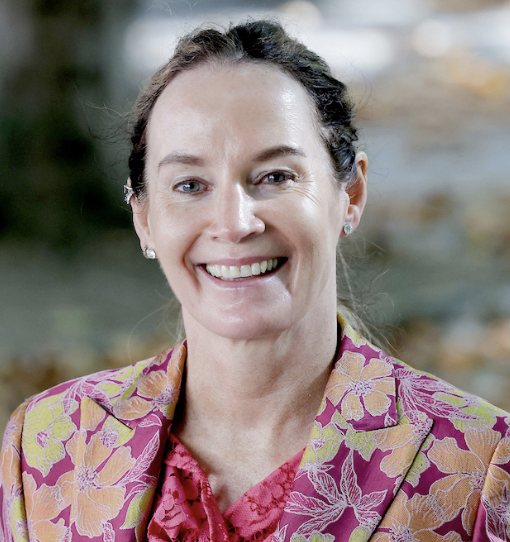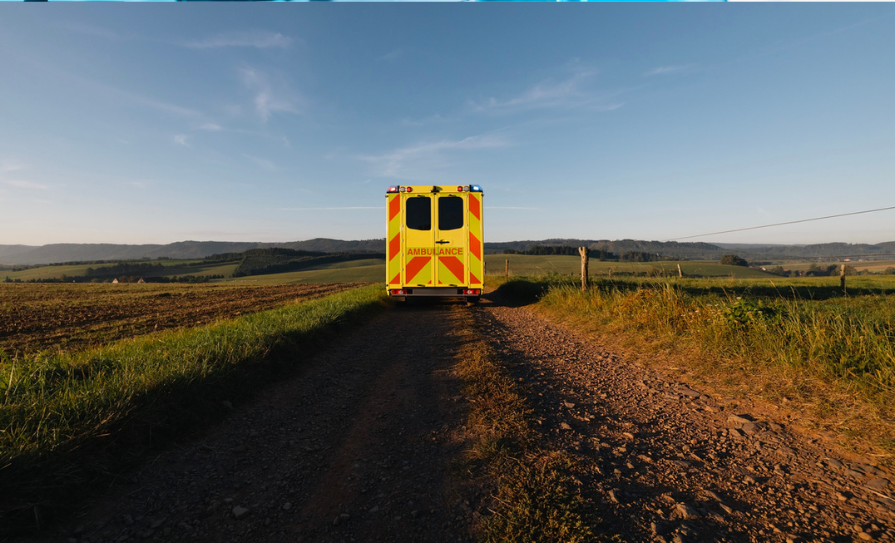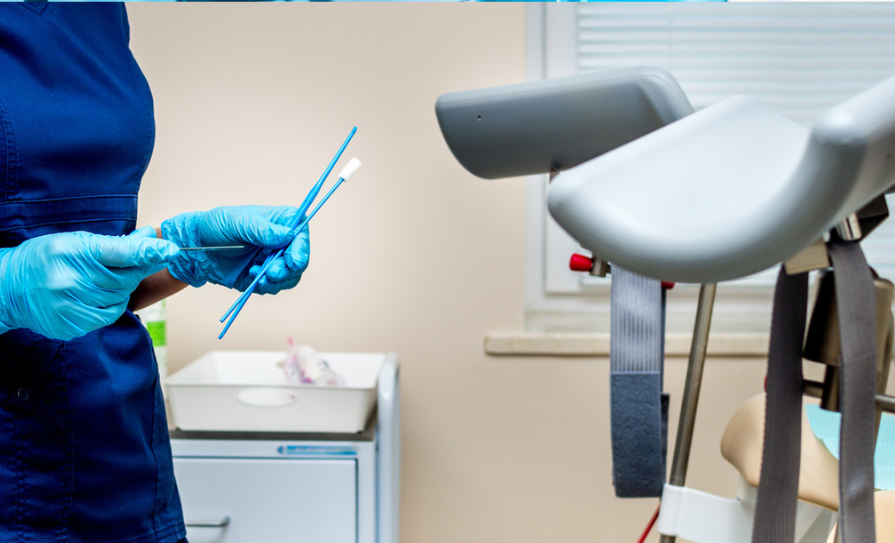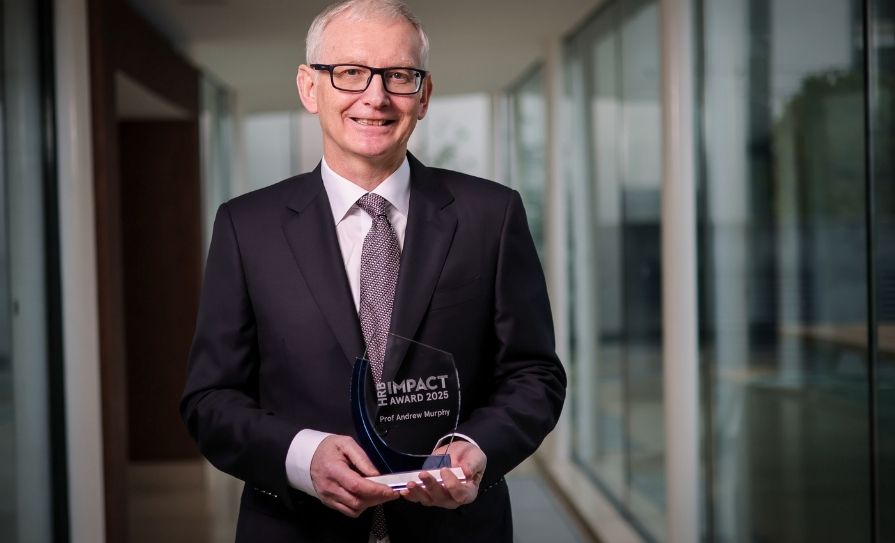
President of the Medical Council Dr Suzanne Crowe speaks to Catherine Reilly about some of the prevailing issues facing the regulator and wider health service
Dr Suzanne Crowe, a Consultant Paediatric Intensivist and Anaesthesiologist, was elected as Medical Council President in 2021. She became only the second female to hold this position after predecessor Dr Rita Doyle.
Speaking to the Medical Independent (MI), Dr Crowe recalled an initial feeling of “imposter syndrome” after her election. She said she soon realised “I just needed to be myself and do the best that I could in my own style.”
Dr Crowe has been an engaged President and is active on social media. She has highlighted the excessive working hours for doctors, the importance of patient advocates, gender inequality in medicine, and the need for greater diversity in the profession, among other issues.
She is a candidate in the current elections to select four registered medical professionals to sit on the Council. Voting closes at midday on 21 March and all candidate bios are on the Council’s website.
If enabled to stay on as President, Dr Crowe said one of her priorities is ensuring a “much greater focus” within the Medical Council on the majority of registered doctors who “work hard to reach the standards that are applied”.
Retention
In autumn 2022, the Council released its latest Medical Workforce Intelligence Report for 2021, which explicitly stated that the risks it identified had serious patient safety implications. These risks included the growth of doctors in the general division and their lack of access to supervision and training; the high proportion of non-training NCHDs relative to both trainees and consultants/specialists; excessive working hours and non-compliance with the European Working Time Directive; and acute doctor shortages especially at specialist level.
“I think that was noticed [by stakeholders], I feel it was noticed at the time,” said Dr Crowe, noting that the Council was “very clear stating” that doctors did not feel valued in the healthcare system.
She believes retention should be the prevailing focus. “We need more doctors and we need doctors to stay in the country, and I think there is probably less reason to increase our numbers in medical school at the moment, we are probably better off working on the retention side of things, so encouraging people to stay.
“We need more training places – funded training places – that will keep people in our country after intern year and keep them on training schemes and gaining experience, and hopefully putting down roots in the community and considering staying in Ireland in the longer term.
“Obviously that has to be matched then by funded consultant posts. There are a lot of locum posts out there in a variety of different hospitals throughout the country and transitioning locum posts to substantive posts would be very important. Because for patient care, the service works much better when it is run by people who are in substantive posts rather than locum posts….”
“I think if we improve working conditions for doctors and all healthcare workers in the system, the recruitment side will almost take care of itself.”
General division
The Medical Workforce Intelligence Report highlighted that 34.9 per cent of clinically active doctors in Ireland were on the general division of the register. The Council stated that this presents “an unacceptable risk to patient safety” as the number of general-registered doctors has been increasing while many consultant/specialist posts are not being adequately filled. It noted a lack of appropriate supervision and training opportunities for doctors in the general division, which comprises a majority of international medical graduates.
Dr Crowe said several factors, including insufficient training access, had led to a “swelling” of the general division.
“Part of the concern around that is that we know very little about the doctors who are on the general register and what they are doing in terms of training opportunities, career progression,” she said. “But we do know doctors come back to us… and tell us one of the reasons they are leaving is they have not had adequate access to training opportunities and to career progression.
“So about 50 per cent of international graduates spend six, seven, eight years on the general division, have come into our country perhaps believing that they were going to be able to access a long-lasting, maybe long-term career, and then discover in fact that those training opportunities haven’t been there, and so they then leave.
“From our point of view, that is a terrible shame because they take six, seven, eight years of experience with patients in Ireland away with them and go to other countries where their progression is perhaps more supported.”
Dr Crowe said more precise information is required about doctors on the general division and the nature of their work. “And then I think the Council needs to work with the Department of Health to prepare a policy on the doctors on the general register with immediate access or improved access to places on the training schemes. And that has been supported by [Minister] Stephen Donnelly already. But what we haven’t really seen yet is the required increase in terms of funded training places.
“So there is a lot of work to be done there and I think we do have to tackle it because when we look at our complaints against doctors, that come in against all doctors, there is a disproportionate number of complaints against doctors on the general division. So the Council very rightly is concerned about this because this is a patient safety issue, and we need to understand why that is.
“Many doctors who come in from other countries perhaps haven’t received the level of induction information that they needed and the amount of training that they needed to work in a different culture and perhaps even a different language.
“In many ways, when you think of the challenges for a doctor coming in from another country, who has graduated in medicine from another country, now being asked to work through English in a very different cultural environment with different prescribing practices and some different clinical practices, it can be no surprise that this would generate an increased number of complaints, and each one of those complaints has the potential to reflect on a poor patient experience or a safety incident, so we are very concerned about this. I think any changes we make or that we suggest for the general register, we have to be really careful that we are also making sure that they factor into the overall workforce.”
The Council has been strongly advocating the development of an overarching health workforce strategy that encompasses education through to practice. Dr Crowe said such a plan would need to set out the numbers and types of healthcare posts required, recognise retirement patterns and preferences for flexible working, as well as the required regional distribution.
“I am certainly not suggesting it would be an easy task to do a workforce plan like that, but I do think it is what is needed; everyone would benefit from that,” she said.
According to the Department of Health, it is developing a health and social care workforce planning strategy and projection model. This project forms a key part of what the Medical Council has been calling for regarding medical workforce planning, said a spokesperson.
Council powers
As well as regulating the individual practise of doctors, the Medical Council is responsible for quality assuring medical education and training in Ireland in accordance with the Medical Practitioners Act 2007. Clinical training sites where intern and specialist training is delivered are required to meet standards set by the Council. Inspection reports, as well as data from Your Training Counts surveys, have identified recurring issues, such as excessive working hours, alleged bullying, a lack of respect shown to trainees, and lack of protected training time for trainees and trainers.
MI asked Dr Crowe how the Council could better use its powers to help address issues, such as excessive working hours and doctor burnout.
Dr Crowe noted that the Council has the statutory powers to inspect training sites and issue recommendations, or if necessary, remove accreditation for a training site. The legislation does not specifically provide for placing restrictions on a site, but this could be negotiated with key stakeholders.
“Now, that has never been done by the Medical Council; that is our only statutory power in terms of targeting hospitals or services that have particular work-place issues,” she said. “We haven’t done it yet, but we are coming closer to doing so, because we are so concerned about the training environment in some hospitals that if that is the only statutory power we have open to us, we may be forced to restrict or reduce accreditation for a particular training site.”
That would be “a major decision” for the Medical Council. “Because if we withdraw or restrict training accreditation for a particular site, we have to be very careful that we are not actually in any way reducing or compromising patient care. So it is a very difficult line for us to walk – I think that helps me understand why it has never been done before within the Medical Council. But at the same time, I feel we can’t ignore really obvious issues within training sites at this stage.”
This issue is being examined as part of a wider move within the regulatory environment towards ‘right touch’ regulation, according to Dr Crowe.
“…. Where we use the information we get, we triangulate it with data that we receive from other bodies within healthcare – for example, the postgraduate training bodies – and we zone in in a much more focused way in sites where there is an issue, rather than doing much more blanket inspection and accreditation and gathering a huge amount of information that isn’t necessarily meaningful.
“We are going to move to the form of regulation that allows us to focus on the problems, understand the problems, and let the rest of the training happen as it should. So, it is part of a bigger move. That is a big cultural change, both within the Council but also within the wider regulatory environment….”
Restrictions for a training site could involve the number of trainees it receives or a stipulation of the particular training hours. “We are just exploring this at the moment,” stated Dr Crowe. “As I say, it hasn’t been done before, so we need to carry out a risk-benefit analysis and try and understand what it would mean for patient care as well. It is difficult, because our remit as a regulator is to protect the patient, but we also have a duty of care to the doctors who are working on a site.”
Bahrain
The regulator’s accreditation duties also extend to clinical sites operating in a deeply constrained political environment in Bahrain, where the RCSI offers a medical degree programme. Controversy has surrounded the Medical Council’s accreditation of the RCSI Bahrain medical degree programme due to allegations of breaches of medical neutrality and human rights at affiliated clinical training sites in the Gulf country, where human rights organisations say freedom of expression is tightly controlled by the ruling monarchy.
The RCSI Bahrain degree programme was first granted approval by the Council in 2014. This approval was unconditional despite the misgivings of some members due to allegations related to clinical sites. A virtual re-accreditation exercise in 2021 recommended unconditional approval subject to a confirmatory in-person inspection visit in 2022. The latter report is due before the Council’s education and training committee this month.
The Global Legal Action Network (GLAN), an organisation of human rights lawyers and activists, has contended that granting unconditional approval is inconsistent with the standards that the Council is bound in law to apply, particularly in regard to appropriate clinical experience and patient safety. The RCSI has stated that the Council’s virtual accreditation report, which is on the regulator’s website, provided feedback and recommendations for the university “to maintain the high-quality medical education it offers to its students”.
MI suggested to Dr Crowe that in a very challenged political environment, such as Bahrain, it is difficult for clinical sites to meet the necessary standards in the way an Irish site would.
“I think that is definitely a challenge,” she said. “It is something that may need to be addressed and viewed in a different way as the years go by. I couldn’t comment on, I suppose, the longevity of these arrangements, but for the moment the inspection teams are well briefed in terms of the challenges they will face and all of those issues – political and cultural – are taken into account when the reports are being written and the recommendations are being issued.”
She said the Council has regular meetings with Irish medical schools and these meetings include representatives from the overseas medical programmes. “So they are very much part of the whole system approach to medical students and I think that is very helpful….”
Part of the concern around that is that we know very little about the doctors who are on the general register and what they are doing in terms of training opportunities, career progression
Fitness to practise
Since the beginning of the Covid-19 pandemic to date, the Council has predominantly held fitness to practise hearings remotely. A recent report by RTÉ Investigates stated that the family of a woman who died shortly after giving birth had voiced disappointment at having to learn via an online hearing that a hospital consultant was found guilty of professional misconduct in her case.
MI asked Dr Crowe if the Council was examining the proportion of hearings that it held remotely.
“The remote platform was brought in during the pandemic, as it was across the coroners court and the court system in general,” she said. “Now, at present, we are holding about 10 per cent of inquiries in person, which means about 90 per cent are online. And for many of the more straightforward cases the online platform works very well. It actually improves the accessibility for witnesses to attend the inquiries, because sometimes we have witnesses, for example, a colleague in training, who might actually no longer be living in Ireland, so trying to bring that witness over to attend a hearing in person is really difficult. And then patients as well – our patients or complainants come from all around the country and asking them to travel is a big thing….
“So, in general, there are good reasons and similar to lots of other meetings we can actually improve attendance. We do have a difficulty in terms of delays of hearing fitness to practise complaints, so keeping hearings online predominantly will hopefully reduce the delays that doctors and complainants are facing when going through this really stressful process….
“But I think we also have to accept that it might not always be appropriate and for more complex cases it may be appropriate for the hearing to take place in person. However, it is important that both complainant and doctor understand it is an inquiry, this is not a court case; there isn’t a prosecution, it is an inquiry to understand what happened and to make findings about the conduct of the doctor.”
However, Dr Crowe said she acknowledged that the process “is a really traumatic experience” for families, “so I can understand how there would be a lot of emotion expressed around the hearing, either in person or online. It is very difficult.”
Dr Crowe added that the Council is working on improving its communications to doctors and the public around the complaints process and the outcomes that may arise. It will be appointing liaison officers to assist parties going through the complaints process as part of this work.













Leave a Reply
You must be logged in to post a comment.